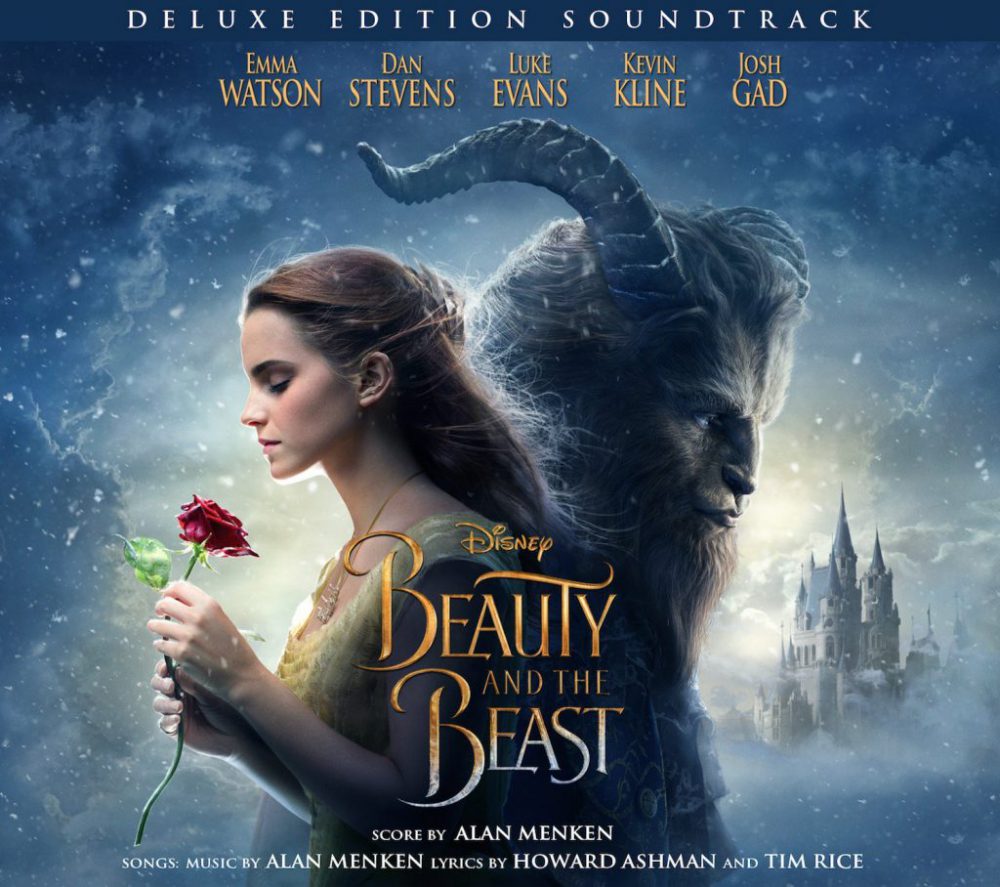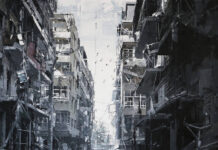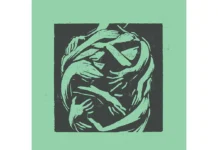Well, this is something I’m sure most of you didn’t expect to find here! This is Musicalypse, not Filmpocalypse (spinoff site, maybe?) after all. However, music is music and since BEAUTY AND THE BEAST is one of my favorite movies of all time, I’ve been apprehensive about this soundtrack and eager to dig into it. Movie-wise, the remake of The Jungle Book nailed it, and I enjoyed the new Cinderella for the most part (which was blessedly song-free), so I have had high hopes for the remake of this classic. On the flipside though, I’ve been reserved simply in the fact that I have hugely high standards for this movie, and there’s no way anyone could ever be a better Mrs. Potts than Angela Lansbury, who played her in the 1991 cartoon, and therefore I was sure that the modern version of some classic songs would suffer.

To keep things simple, I’ll be sticking with the songs from the movie itself, and be skipping over the pop versions, demos, and score that all come with the deluxe edition (long story short, the score is essentially perfect; enjoy). It’s also worth noting that I waited to write this until after I saw the movie so that I could understand the songs in the context of what was happening visually. If you are extremely spoiler sensitive, maybe skip this, as I’ll not just be discussing the music itself, but how it has changed from the original, which I feel is the most important part of this soundtrack.
1. “Overture”
This doesn’t really count as a song from the film itself, as I can’t actually recall if it was present before the movie began. Nevertheless, I felt it prudent to include it as it is a very lovely summary of the best parts of the score from the movie and acts as a wonderful introduction to what is coming. Alan Menken is very clearly a professional who knows how to elaborate on and adjust his original songs without doing them harm.
2. “Main Title: Prologue pt. 1”
The iconic introductory music is beautifully preserved immediately. Not a song so much, per se, but the narration, now done by Hattie Morahan (who plays the Enchantress) tells the story in a bit more depth regarding how Prince Adam was really a terrible person – spoiled and selfish, not just saying it but explaining why. This intro does a more complete job of setting the stage for Adam’s downfall as such. I only wish they had addressed him by his name this time around. Alas.
3. “Aria”
One of the new songs, it works to introduce the new and revamped characters of Maestro Cadenza and Madame de Garderobe respectively, who add a new level of musical depth to the story. The song also portrays the circumstances under which the prince and his staff lived. In particular, I truly love the addition of Cadenza as the harpsichord, which feels so appropriate in the setting. I’ve always related this era to the harpsichord, though I couldn’t say why, or if that’s even accurate.
4. “Main Title: Prologue pt. 2”
And so the scene is set, with this vocal introduction, which concludes the story of Prince Adam rejecting the Beggar Woman/Enchantress and becoming the Beast. The score in this is wonderfully epic and devastating, and you can feels the climax of this introduction in your bones as the curse sets in. As well, this time they bothered to explain how the village had no idea that there was a castle not far away, which I appreciate. One minor complaint in here is that “who could ever learn to love a beast?” is distinctly a question. I liked in the original that it was a statement, as the rhetorical nature made more sense contextually – the fact that it was not a question underscored that everyone, including the beast, knew that it was unlikely, which likewise adds a certain allure to the viewer/listener. As such, this new version feels rather dumbed down in that sense.
5. “Belle”
At last the true classics begin. Menken retains much of the original score, with all its light strings and quaint charm. However, the first notes Belle sings immediately accost your ears with an astounding amount of autotune. I immediately wondered if Emma Watson simply couldn’t sing very well, as I know from some interviews that this was her first singing role. It’s pretty abrasive, but I am able to put it aside because they do such a lovely job of the rest of it. Firstly, instead of speaking with the baker, Belle speaks to a man she refers to as Monsieur John, who has forgotten something but can’t recall what – a nice little sneak peek into what is to come. He then says that her book, “sounds boring.” Belle then visits the little library and has a new conversation with the librarian that is neither better nor worse than the original, and suggests that he is one of the few people in town that understands her love of reading and her as a result. Most of the changes in this song relate to what the village is saying about Belle, and it’s nice to see that they made the gap between Belle and the villagers far more obvious – the village doesn’t only not get her, but they also don’t like her for being different and clearly look down on her. It is also hinted that this distaste is somewhat mutual.
We also get some new insight into Gaston and LeFou – that Gaston was in the war and is looking for something more now that life is more simple. The Bimbettes are exaggerated in their annoying qualities, singing loudly and out of tune, but they are made out to be more horrible than in the 1991 version, taking on the “but behind that fair facade / I’m afraid she’s rather odd” line. There is clearer spoken interaction between the townsfolk in their day-to-day lives, and concludes with the classic, “she really is a funny girl / that Belle!” before finishing up.
6. “How Does a Moment Last Forever (Music Box)”
This is the second new song and perhaps the least necessary addition, but it works nicely as an introduction to the reimagining of Maurice, who is no longer the crazy/eccentric inventor, but an artist and maker of music boxes who clearly has a troubled history relating to the death of his wife. It’s a short song, but I suppose it serves its purpose in telling about his character. The music box style is lovely and sweet, suiting the lyrics nicely.
7. “Belle (reprise)”
I truly expected the autotune in this song to be far worse than it ends up being. It’s still there, but in the big crescendo it doesn’t end up being nearly as horrible as I had feared it might. Watson adds her own passion to this, with her “argh” of frustration at Gaston’s suggestion of marriage, and the music from the hillside is grand and works wonderfully to express her desires and dreams.
8. “Gaston”
The autotune is wonderfully absent for the most part (at least to my ear) in this song, which is one of my personal favorites. It’s clear that Josh Gad and Luke Evans have been in musical theater before, because their voices are strong and confident and they both make vibrato seem as easy as breathing, and Gad in particular is able to play around and be silly without the risk of sounding overdone. They make a few changes to the lyrics, but I love all of them, referring to playing darts, breaking hearts, and the questionable nobility of Gaston’s hunting techniques. Evans nails a great higher note in the “I’m roughly the size of a barge” part, and the following instrumental interlude suits the tavern setting beautifully. Lefou gets a little nasal in the end and Gaston pokes a bit of fun at the song itself, but perhaps the best part of all is when LeFou tries to spell “Gaston” but realizes he can’t spell – it’s clearly poking fun at the original, but elaborates to great success.
9. “Be Our Guest”
Ewan McGregor was not who I would’ve expected to play Lumiere, and I can’t deny that his French accent is a little bit ridiculous. However, I love, again, the addition of the harpsichord in the music. Lyrically this song has some of the fewest changes from the original, which I would say is for the best, as the original is a true classic and this needed nothing new. The changes are all largely in the music and singing style, as well as timing and embellishments. The only lyrical change is the elimination of the “10 years” distinction – this is good because a common complaint about the 1991 film was that it suggests that Prince Adam was 11 years old and answering the door in the stead of his servants, and thus this version, while less specific, makes this bit of the story less illogical.
I have two minor issues with this song, however. The first is just that, perhaps as a result of changing so few lyrics, McGregor has changed the timing of the vocals a bit too much. It isn’t necessary and it doesn’t quite flow as well as the original, and it feels a bit like it was sung that way just for the sake of changing something and wasn’t remotely necessary. This happens in a few other songs, such as “Something There,” but I find it most notable in this one, and I think they could’ve left more alone with the vocals.
The second issue relates to more than this song as well, such as “Belle.” I’m not 100% sure I’m correct, but Emma Thompson is speaking in a Cockney accent, or something not far from it. The problem with this, as well as the variety of accents used by the village people, Lumiere’s French accent, Cogsworth’s “higher class” accent, and so on, is that this story takes place in France. I appreciate the original for using a neutral accent, because then you can excuse the lack of French accents based on the fact that it’s a children’s tale and doesn’t need to be fully realistic (and children don’t want to watch a movie in French and read subtitles, if they’re able to read at all). The multitude of accents here would be quite realistic if the story took place in England, but it doesn’t. It’s France. Therefore, I find that the variety of accents makes the tale feel a bit less logical, as it highlights and emphasizes that these are clearly a bunch of English people in France, who are speaking partly in French but mainly in English. I do still consider it a minor thing, but it is a bit bothersome.
10. “Days in the Sun”
This is one of the most well-needed new songs, which shows a bit of what Adam was like as a child (apparently autotuned), but also how the castle staff are feeling. For example, the longing for the harpsichord and wardrobe to be together – it is suggested that they haven’t seen each other in years, as she is upstairs and rather narcoleptic, and he is downstairs, and neither a wardrobe nor harpsichord are able to traverse a staircase. It is also seen with Lumiere and Plumette, his feather duster girlfriend, longing to feel each other’s warmth once more.
As Belle’s lyrics point out, the song shows how much sorrow and hope exist together in the castle, and it’s truly quite beautiful if honestly a bit forgetable as a track. Now, since the rest of the staff aren’t autotuned much or at all, Belle’s parts again are a bit abrasive in their electronic sound, but I appreciate her lyrics, where she learns from the others and finds new wisdom but also uncertainty about her feelings. Things are no longer black and white for her. It’s a bit of development for her that was entirely absent in the original and I would say makes her character more believable. She and the Beast have made peace since she ran away, and though she isn’t sure about him just yet, she feels a connection with the staff, as they feel responsible for saying and doing nothing as Adam became a terrible person and that they brought the curse on themselves, creating their own prison. She too is a prisoner, and thus wants to help them (though they don’t explain how to break the curse, of course). So with Belle befriending the staff and understanding them, it allows her more reason to try to befriend the Beast. A nice addition, I’d say, even if the autotune is too apparent. The music also fits in nicely with the rest of the score and original style, so overall it’s a success.
11. “Something There”
The autotune is immediately less bad in this than some of the others. The light and airy spirit of the score is preserved and updated beautifully. Again, that timing thing from “Be Our Guest” ends up being distracting, largely in Watson’s parts. Dan Stevens‘ performance as the Beast is both odd and impressive – he is clearly singing in an uncomfortable voice (the Beast speaks far more deeply than Stevens, after all), and like Watson, he was new to singing and so does a great job all things considered. The cast of household staff perform very nicely as well, with Mrs. Potts’ accent not even standing out too much. Chip gets a bit of a new line as well, and it’s nice that they give him a bit more cheekiness in the modern version.
12. “How Does a Moment Last Forever (Montmartre)”
Here Belle’s family gets some more backstory, something that may not have been strictly needed, but works nicely to explain her father’s protectiveness as well as some of her traits, including her sorrow regarding her mysterious past. This is not exactly a reprise, but works nicely as a tie-in to Maurice’s song earlier on and makes up for the lack of Gaston’s reprise. The music is sweet and sad, fitting the scene nicely.
13. “Beauty and the Beast”
I’m so sorry, Emma Thompson. You did a lovely job, you were barely autotuned, and your accent wasn’t even that overwhelming. You’re just not Angela Lansbury. I knew it couldn’t be done – no one could do it better than the original. Thompson, perhaps because of the choice of accent, lacks the warmth and charm that Lansbury had, sadly. The music, however, is incredibly lovely – the dynamics give me incredible goosebumps and the little bits of harpsichord again are a complete delight. I had at first wondered why this wasn’t sung by Madame de Garderobe, the superior singer, but I’ll chalk that up again to the suggestion that the wardrobe is physically incapable of going up and down all those stairs, as well as preservation of the original. Of all the songs, lyrically this has the fewest changes from the original, and I believe that was wise – again, there are classics you really shouldn’t mess with and this is undoubtedly one of them.
14. “Evermore”
Easily my favorite of the new songs, this was by far the most necessary addition, I would say. I love the music in the beginning, which takes an iconic line but alters it into a more melancholic tune, and the dynamics are truly perfect, tugging at your heart in all the right places. Beast never gets his own song in the original, and while you know he loves Belle because he lets her go, you don’t know anything about the effect that love has had on him nor why it was important, and that is where this song comes in. This song takes everything you need from the iconic score and molds it into a modern classic, expressing how the Beast will live forever (as the curse declares) tormented by what he gained from Belle’s companionship and what he learned from her, suggesting he will survive his eternity alone by pretending that she’ll come back to him someday and they will be together. It manages to be sad and hopeful at the same time, and you can feel the pain without it becoming burdensome, leaving you with a sweet, lovely feeling – this lesson he has learned will be hard to live with, but he is glad to have learned it, even if it means an eternity alone in sorrow. This is a truly beautiful song that gets me pretty choked up every time I listen to it. Stevens‘ singing is a touch tentative at the beginning, but it suits the song, and the confidence builds as the song’s dynamics rise. As an entirely new song that succeeds on so many levels, this is definitely my personal highlight of the soundtrack.
15. “The Mob Song”
The original song has Gaston fear-mongering in the village, yet in this adaptation, the original lines are sung by the townsfolk, and I really enjoy this, as it shows the town’s own simple-mindedness and fear of things they don’t understand. Gaston, in fact, goes so far as to say that these villagers are easily manipulated when they are afraid and will do whatever he says. As well, LeFou’s character is more likeable (which I think is an advantage as he was declared gay in this version – it would be questionable to have a gay character as a villain the first* time around), as he begins to see Gaston for who he is, and simultaneously suggests that the villagers are fools in this wonderful line: “There’s a beast running wild, there’s no question / But I fear there are monsters released.” They’ve also kept my two favorite lines: “Screw your courage to the sticking place” – a line from Macbeth, as well as this incredibly self-aware bit: “We don’t like what we don’t understand / In fact it scares us.” I can also give them bonus points for including the women of town in the mob, rather than leaving them at home this time. Musically, I feel as though this takes the original score and makes it more bombastic and epic. Pretty cool!
* Excluding Oaken from Frozen, as he was never officially declared gay, despite the evidence.
16. “Beauty and the Beast (finale)”
And now we get to hear the lovely operatic vocals of Audra McDonald in this song, as I would have hoped in the final scene. Mrs. Potts joins in as well, noticeably autotuned and with some new lines, but the song nevertheless concludes everything in a beautiful manner, very reminiscent of the original with the choir in the finale, and the soundtrack thus ends on a great note.
So, overall? On the plus side, I think they did wonders for making the story more sensible lyrically in many of the songs, and the musical adaptations were wonderful across the board. There wasn’t a single new song that didn’t add something, even if it was quite minimal, so the time was never wasted, and the score matched the original and blended wonderfully with the new songs as well. Really, the major downfall was the autotune. The odd part is that it’s used on more than just Watson, so I can’t be sure if it was because she struggled with the vocals or if it was partly a stylistic choice. If the latter, it was a terrible decision. If it was on Watson‘s behalf, I don’t know why they didn’t use a different vocalist. Disney has done this frequently and it’s not uncommon in live-action movies too. Regardless though, I do consider this movie and its soundtrack to be a rousing success on the whole, particularly considering I nitpicked it to death, and I highly recommend it to fans of the original.
Written by Bear Wiseman
Musicalypse, 2017
OV: 2020
Tracklist
- Overture
- Main Title: Prologue pt. 1
- Aria
- Main Title: Prologue pt. 2
- Belle
- How Does a Moment Last Forever (Music Box)
- Belle (reprise)
- Gaston
- Be Our Guest
- Days in the Sun
- Something There
- How Does a Moment Last Forever (Montmartre)
- Beauty and the Beast
- Evermore
- The Mob Song
- Beauty and the Beast (finale)
Lineup
Belle – Emma Watson
Beast – Dan Stevens
Gaston – Luke Evans
Maurice – Kevin Kline
LeFou – Josh Gad
Lumiere – Ewan McGregor
Maestro Cadenza – Stanley Tucci
Cogsworth – Ian McKellan
Mrs. Potts – Emma Thompson
Madame de Garderobe – Audra McDonald
Label
Walt Disney
Links
Recent posts
[recent_post_carousel design=”design-1″]






[…] of you who follow Musicalypse may have noticed that we throw the odd soundtrack review into the mix from time-to-time. One of the most recent of these was our review of the first half of […]
[…] that Musicalypse does the occasional review of soundtracks, including that of the remake of “Beauty and the Beast,” or the Finnish video game, Noita. This time around we’re looking at last […]
[…] solo cover feature was of Thomas Grove [EMBER FALLS, EVERWAVE] singing “Evermore” from Beauty and the Beast; today, we’re looking at Yannis Papadopoulos [BEAST IN BLACK] doing “Speechless” […]
[…] In this day and age, artists are more and more able to play around with music and can try new things without the limitations of their band and its chosen style. As an example of this, some singers have been doing vocal covers online, like Yannis Papadopoulos‘ [BEAST IN BLACK] famed cover of “Ghost Love Score” by NIGHTWISH or Hannes Horma [SILVER BULLET, ex-TURISAS] doing “You Raise Me Up” by Josh Groban. Today, however, we’re looking at Thomas Grove [EMBER FALLS, aka Tuomas Välimaa also of EVERWAVE] doing a solo cover of “Evermore” from the 2017 live remake of Beauty and the Beast. […]